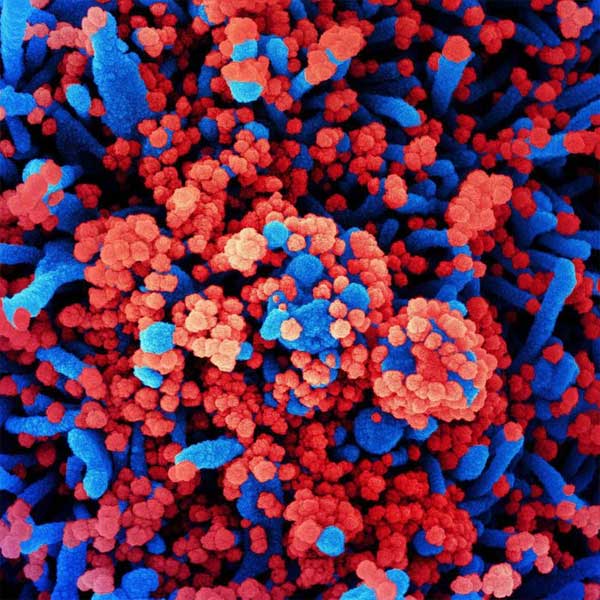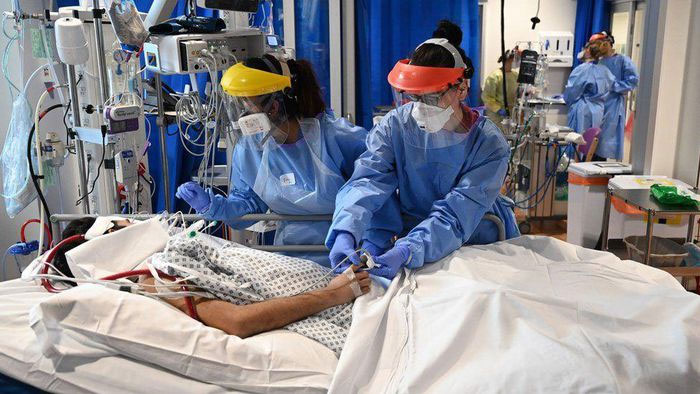According to Independent, the study was discovered by a team of experts at the MRC Virus Research Center, University of Glasgow, Scotland. The research was published in the journal Science on September 28.
The “Killer” of nCoV
Some individuals exhibit a strong self-protective ability against nCoV infection, while many others experience severe illness or death from Covid-19. According to the authors, this discrepancy arises from small changes in the gene structure of patients.
The gene segment they identified is OAS1. This gene is believed to play a crucial role in shaping the body’s responses when a virus attacks.
When a human cell is infected with nCoV, OAS1 protein can detect the presence of the virus. It begins to activate and orchestrates a series of related events to identify the characteristics of the intruder. Subsequently, this gene segment activates an enzyme that destroys RNA, allowing the cell to start attacking the genetic material of the virus.
The research indicates that some individuals with the OAS1 gene segment have a significantly higher protective capability against nCoV, thanks to a mechanism known as prenylation. Single hydrophobic (lipid) molecules are added to proteins or chemical compounds.

Electron microscope image of a cell (blue) invaded by nCoV particles (red). Isolated by NIAID from a sample. (Photo: NIAID).
Inside the nCoV cell, there are lipid-formed vesicles that assist in reconstructing the gene set. The enzyme produced by OAS1 is encoded to match the virus search filter. Therefore, it is likened to a “predatory warhorse”, hunting SARS-CoV-2. As soon as it detects the genetic characteristics (spike protein) of nCoV, OAS1 activates the destruction mechanism.
In patients hospitalized due to Covid-19, the pre-encoded version of the OAS1 gene is virtually absent. Research from the Scottish expert team shows that individuals lacking this gene are 1.6 times more likely to be hospitalized or die.
With this finding, the authors warn that Covid-19 could be far more dangerous, even without evolving to adapt to the immune system. Particularly, if SARS-CoV-2 mutates and can break through the defense system of the pre-encoded OAS1, it could spread more easily and be more lethal.
Identifying Individuals at Higher Risk of Severe Outcomes Based on Genetic Background
On September 24, the National Institute of Allergy and Infectious Diseases (NIAID) in the U.S. also announced findings explaining why some individuals experience severe outcomes, and why more men die from Covid-19 than women.
The study found that over 10% of severe cases have antibodies that automatically attack the immune system instead of the virus causing the disease. About 3.5% of Covid-19 patients who are hospitalized carry a genetic mutation that affects their immune response.
Both groups lack immune responses dependent on type I interferon proteins. This is a set of 17 essential proteins to protect cells and the body from viruses. The absence of type I interferon proteins is believed to be the reason why Covid-19 patients are more likely to experience severe outcomes.
This is not the first time researchers have found connections between genes and Covid-19. Previously, at the end of 2020, scientists at the University of Edinburgh studied the DNA of 2,700 Covid-19 patients in 208 intensive care units across the UK. They discovered five genes related to two molecular processes – antiviral immune response and pneumonia, which are central to many severe cases.

Experts from various countries indicate that gene segments in DNA structures are linked to whether a person is at risk of severe outcomes or death from Covid-19. (Photo: France24).
According to Reuters, the newly discovered genes include: IFNAR2, TYK2, OAS1, DPP9, and CCR2, explaining why some individuals experience severe symptoms while others only have mild cases. The findings were published in the journal Nature.
The expert team in the UK found that increased activity of the IFNAR2 gene could provide protection against Covid-19, as it has the potential to mimic the effects of interferon treatment.
Findings regarding the relationship between genes and Covid-19 provide scientists with additional data in the search for treatment drugs. They are conducting clinical trials of drugs targeting specific antiviral and anti-inflammatory mechanisms.
The expert team from the University of Edinburgh discovered that increased activity of the IFNAR2 gene could provide protection against Covid-19, as it has the potential to mimic the effects of interferon treatment.
Several existing drugs are being explored in clinical trials for their potential against Covid-19, including interferon-beta-1a, the immune response-modulating drug interleukin-1, and Sanofi’s arthritis drug Kevzara.



















































